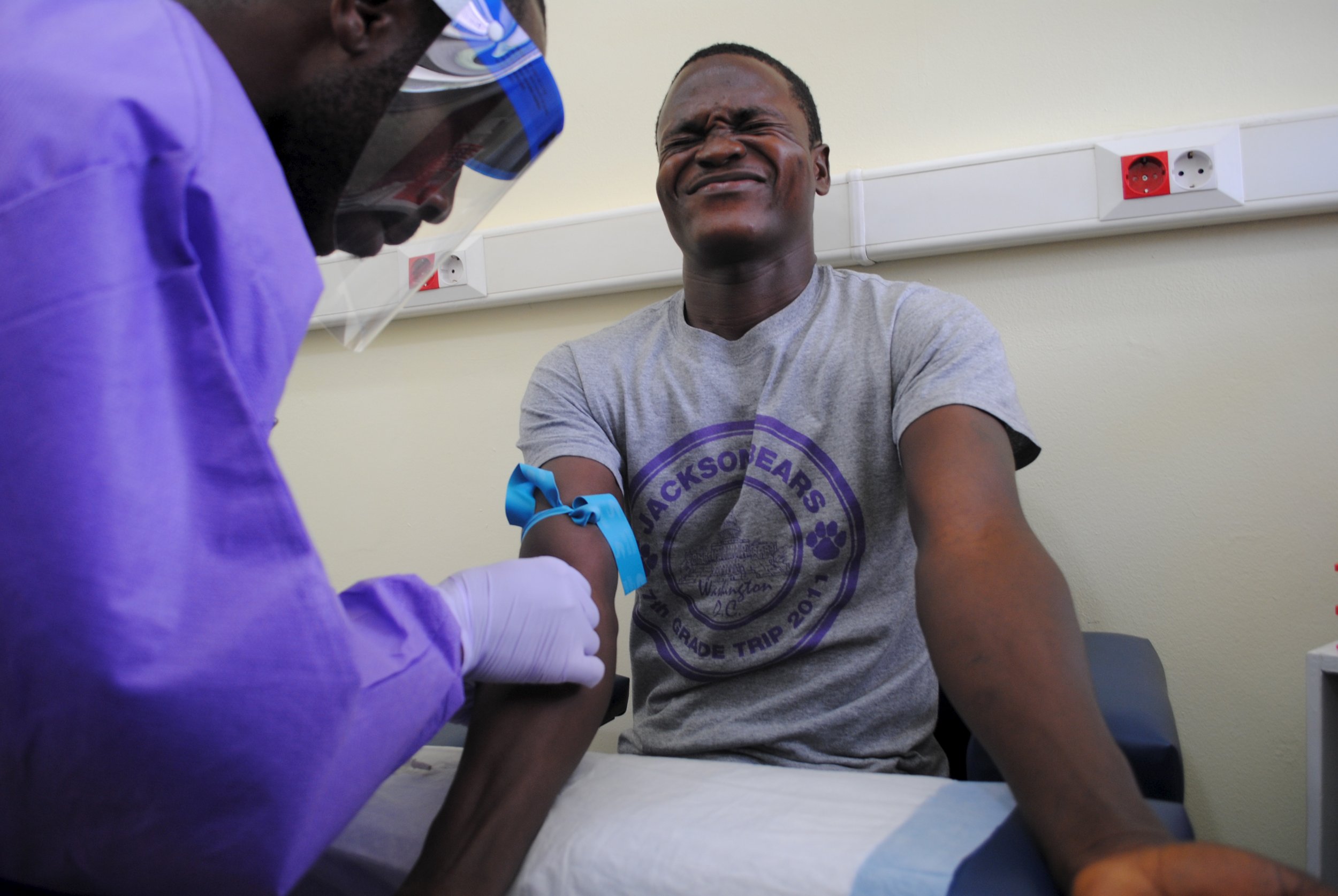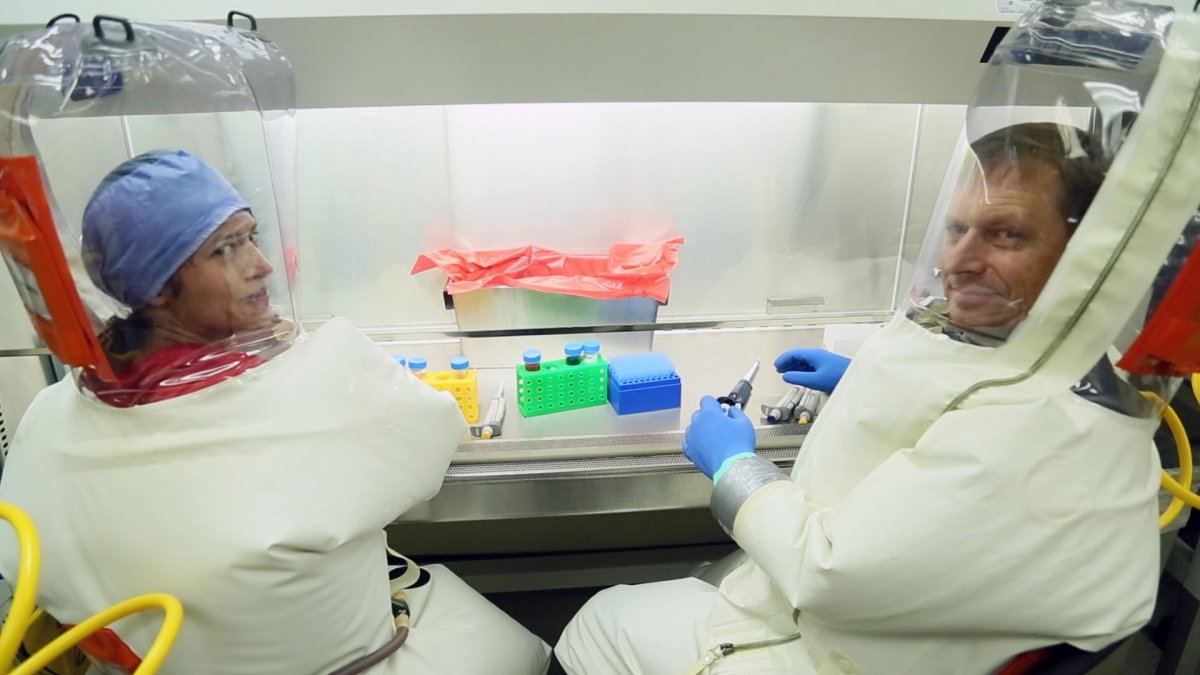
Researchers have created a needle-free vaccine for Ebola that can be inhaled, and which has so far been shown to provide a striking degree of protection from the virus for rhesus macaque monkeys, according to a study published today in The Journal of Clinical Investigation.
Initial tests of the vaccine on humans have been schedule by the National Institutes of Health, and these trials will hopefully go forward in the next couple months, says study lead author Alexander Bukreyev, a researcher at the Galveston National Laboratory at the University of Texas Medical Branch.
Such an aerosolized vaccine has several advantages over those that are administered with a needle, Bukreyev says. For one, they can be more easily delivered by nonspecialists; one could presumably even self-administer the vaccine.
Another significant problem such a product may circumvent: Many in Western Africa are reluctant to have medical workers stick a needle into them and inject them with a vaccine, says Robert Garry, a researcher at Tulane University. "This would get around that taboo, which is a pretty big deal," says Garry, who wasn't involved in the study.
An "aerosolized vaccine against the Ebola virus is much more practical in West Africa than any needle-required applications," agreed Dr. Igor Lukashevich, a researcher at the University of Louisville who also was not involved in the work.

The study compared the immune reaction of the inhalable vaccine with an unrelated injectable product that has been shown to work in macaques, and found that both were about equally effective at creating Ebola-specific antibodies and boosting the creation of immune cells capable of fighting off the virus. Bukreyev says that his team's vaccine may even be better than an injectable because it also leads to a boost in the levels of immune cells called lymphocytes in the lungs and upper respiratory tract (e.g., throat and sinuses), which could help provide protection against infection via these organs.
In the paper, all 10 macaques given the aerosolized vaccine survived after being subjected to a massive amount of the Ebola viruses, something like 1,000 times the typically lethal dose of the pathogen, Bukreyev says. All the animals given a sham treatment died of the virus. Only one dose of the inhaled vaccine was necessary for protection, the study found.
The vaccine consists of a weakened strain of parainfluenza virus, which can cause a mild respiratory, flu-like illness in humans. This strain is genetically modified to contain a protein present on the envelope, or exterior, of Ebola virus cells—so the body learns to recognize this protein, and protects against future attacks by the real virus, Bukreyev explains.
Ebola may have dropped out of the headlines recently, but the outbreak of the virus in West Africa remains alive and well. In the first week of July, the World Health Organization (WHO) confirmed 30 new cases of the Ebola virus in the region, including three cases in Liberia. That's a particular concern since the WHO declared the country Ebola-free in early May.
Various vaccines are being developed, including two that are being tested for efficacy in humans, whose results are expected later in the year, according to the WHO. But this is the first and only aerosolized vaccine to be developed, Bukreyev said.
The inhalable vaccine could have significant advantages, but it must pass several key tests, say Chris Cooper and Sina Bavari, scientists with the United States Army Medical Research Institute of Infectious Diseases. The "safety of delivering vaccines by aerosol needs clear safety margin and may impact performance of this platform," they wrote in an email. It also remains to be seen how long the protection provided by such a vaccine would last, they add.
Uncommon Knowledge
Newsweek is committed to challenging conventional wisdom and finding connections in the search for common ground.
Newsweek is committed to challenging conventional wisdom and finding connections in the search for common ground.
About the writer
Douglas Main is a journalist who lives in New York City and whose writing has appeared in the New York ... Read more
To read how Newsweek uses AI as a newsroom tool, Click here.






